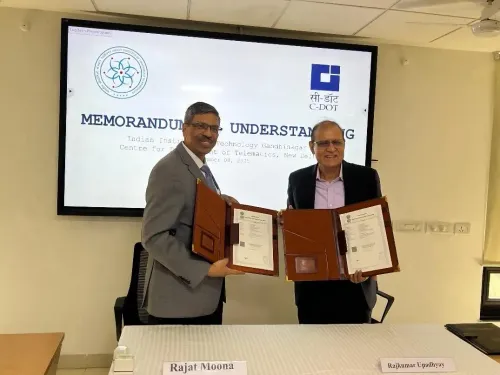Maruti Suzuki India Reaches Historic 2 Million Vehicle Production in a Calendar Year

New Delhi, Dec 17 (NationPress) Maruti Suzuki India announced on Tuesday a remarkable production achievement of 2 million vehicles in a single calendar year, marking the first time this milestone has been reached in the company's history.
This achievement also makes Maruti Suzuki the first of Suzuki Motor Corporation's global manufacturing plants to attain this significant landmark.
Out of the total 2 million vehicles, nearly 60 percent were produced in Haryana while 40 percent came from Gujarat.
According to Hisashi Takeuchi, Managing Director and CEO of Maruti Suzuki India, "The 2 million production milestone is a testament to India’s manufacturing potential and our commitment to the ‘Make in India’ initiative."
Takeuchi further stated, "This accomplishment showcases our dedication, along with our supplier and dealer partners, to fostering economic growth, supporting nation-building, and enhancing the self-reliance and global competitiveness of India’s automobile sector."
Maruti Suzuki plays a vital role in India’s automotive exports, contributing to nearly 40 percent of the total passenger vehicle exports from the country. The company exports 17 models to approximately 100 countries worldwide.
The Ertiga was recognized as the second millionth vehicle produced at the company’s advanced manufacturing plant in Manesar, Haryana. The top five vehicles manufactured during the calendar year 2024 included Baleno, Fronx, Ertiga, WagonR, and Brezza.
Currently, Maruti Suzuki operates three manufacturing sites: two located in Haryana (Gurgaon and Manesar) and one in Gujarat (Hansalpur).
These manufacturing facilities collectively possess an annual production capability of 2.35 million units.
The firm has plans to enhance its annual production capacity to 4 million units and is in the process of establishing a new greenfield manufacturing unit in Kharkhoda, Haryana.
Construction at the Kharkhoda site is on track, with the first plant expected to have an annual capacity of 250,000 units and to become operational in 2025.
Once fully functional, the Kharkhoda facility is projected to achieve a planned capacity of 1 million units per year, according to the company.









